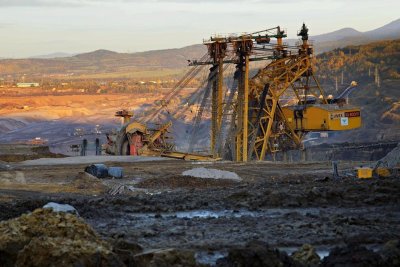
July 3 (UPI) — The government of President Dina Boluarte has extended Peru’s small-scale mining formalization program through December, even as doubts persist more than a decade after its launch and experts warn that criminal organizations have exploited the system.
According to official figures from the Ministry of Energy and Mines, just 2,108 of the 86,000 miners enrolled in the Integral Registry for Mining Formalization, or REINFO, had completed the process as of November 2024 — a rate of only 2.4%.
REINFO was launched as part of a government effort to contain the unchecked growth of informal and illegal mining. It gave registered miners a deadline to submit documents, meet environmental and labor standards and transition to legal operations. But after four extensions, the process has failed to deliver lasting results.
Energy and Mines Minister Jorge Montero said the situation could improve in the coming months. He noted that another 5% of registered miners are close to completing the formalization process, and added that the government aims to mediate agreements between concession holders and roughly 15,000 small-scale miners who are working informally on those sites.
But experts say repeated deadline extensions have turned the program into a legal gray area that criminal groups exploit.
“We’re talking about a failed system by every measure,” Mónica Muñoz-Nájar, an economist with the Red de Estudios para el Desarrollo, said in an interview with RPP. She pointed to the low rate of formalization and the expansion of informal mining.
“Forty-four percent of the gold Peru exports comes from illegal mining, which has become more profitable than drug trafficking. It’s estimated that illegal mining generates $12 billion a year,” she said.
One of the strongest criticisms of REINFO comes from the National Society of Mining, Petroleum and Energy. Its president, Julia Torreblanca, said the registry has become a “shield for illegality” and that its indiscriminate extensions distort the market by protecting individuals who have no intention of following the law or meeting formalization requirements.
A growing concern, however, is the infiltration of organized crime into informal mining zones operating under REINFO’s protection. Organizations such as the Observatory of Illegal Mining and advocacy group DAR have warned that criminal networks use the registry to operate unregulated mining fronts, traffic illegal gold, transport chemical supplies and even facilitate human trafficking and forced labor.
These warnings align with reports from the National Police, who have identified criminal networks in regions including Madre de Dios, Puno and La Libertad. Authorities say these groups use informal mining concessions to conceal a range of illegal activities, including fuel smuggling, arms trafficking and the export of gold to international markets.
In early May, police reported the kidnapping and murder of 13 private security guards employed by a contractor linked to the Poderosa mining company in the Pataz region. Authorities said the bodies showed signs of torture and were found bound and unclothed — a sign of the extreme violence used by criminal gangs tied to illegal mining.
The case marked a critical moment in Peru, underscoring the violence and criminal networks that operate alongside illegal mining in the Andes and the direct threat they pose to people working in the region.
A recent report from the Pontifical Catholic University of Peru warns that illegal mining is one of the most destructive activities environmentally, socially and economically.
It found that in regions like Madre de Dios, up to 50,000 hectares of forest have been destroyed. The state collected about $12,000 in taxes, compared with an estimated $565 million in extracted gold. Estimated tax evasion ranges from $85 million to $168 million.